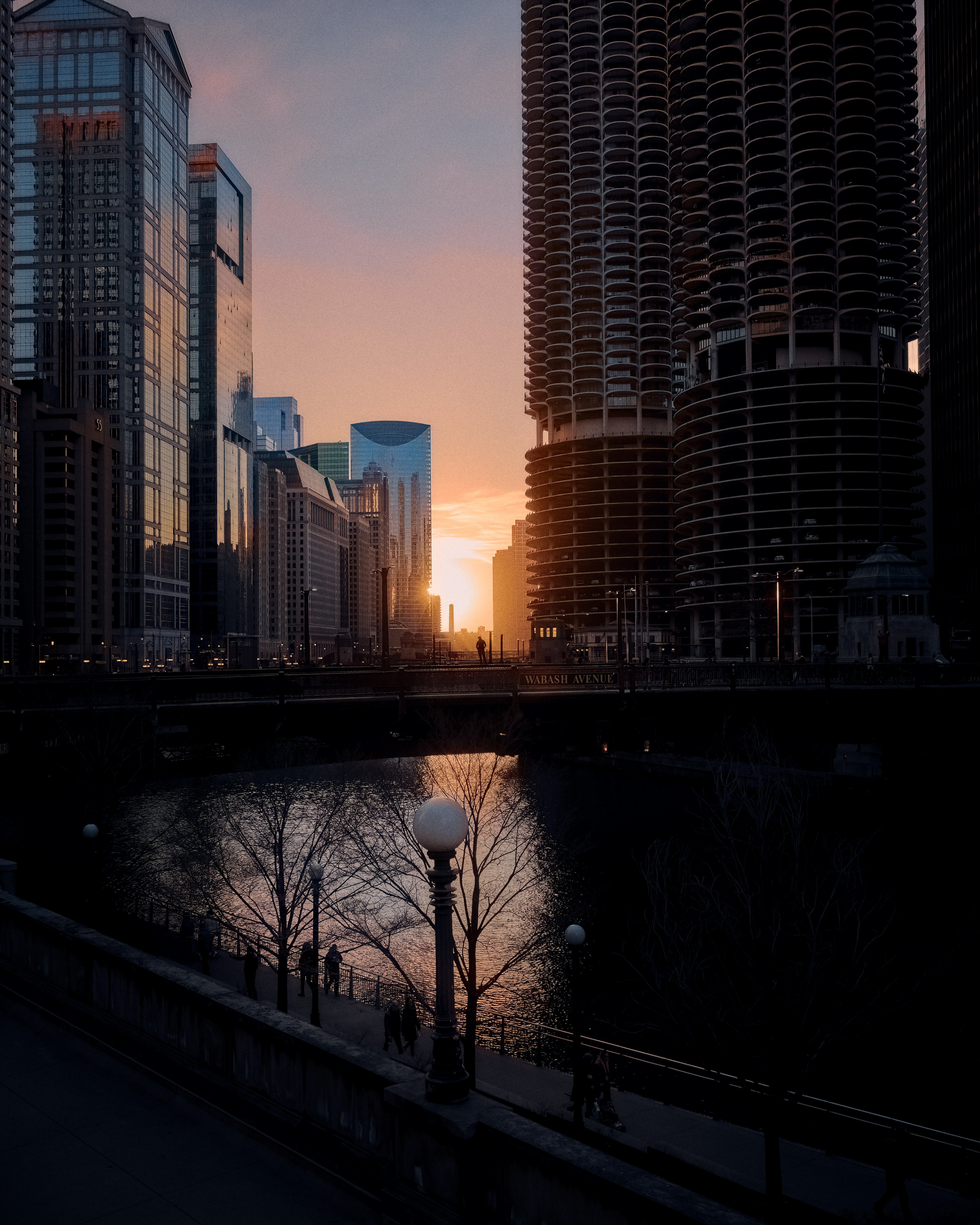Home
When our plane landed in Tokyo, my phone automatically started showing dual clocks: Chicago time on the top, Tokyo time on the bottom. It’s a little default feature for people on vacation, or traveling for business. I had a few notifications pending, but one from Verizon stood out to me: “Welcome to Tokyo, enjoy your trip!”
That was certainly the goal, though they might be surprised how long it’s going to be for.
I left that clock on my lock screen for the first week or so. Okay, I didn’t know how to turn it off, but I guess I also liked the comfort of knowing what time it was in Chicago; back “home.” We were so busy for the first few days, I didn’t even take the time to reset my watch, so I wore a timepiece that was perpetually wrong. I kept that dual time in the back of my mind—especially over the first few days, as jetlag was hitting me hard—but also just as a reference for what was happening back where I was born.
Time is almost “reversed” here: the middle of the day in Tokyo is the middle of the night in Chicago. I could tell each day when my social media got quiet (and conversely which freaks were checking Instagram at 2am). A lull develops in the middle of the afternoon, when I’m fully disconnected from what’s happening on the other side of the world—maybe that’s when I’m most immersed in my new environment.
In the start of Karl Ove Knausgård’s My Struggle, there’s a discussion that’s stuck with me. Knausgård, in coming to grips with the death of his father, writes not only about our tendency to obfuscate or hide death, but also simply about the practical matter: when does death occur? Is it when the heart stops beating, and blood begins to pool rather than flow? Is it when the brainwaves finally still?
Conversely, when does a place become home? I’ve been asked a few times if I live here (mostly by shop staff, upon meeting a foreigner who does his best to order or ask questions in Japanese). My fiancé and I keep posing the question to each other: isn’t it crazy that we live here? That we packed our belongings, bought one-way tickets, and landed with no immediate plans to leave? Why yes, it is crazy. It’s cool and frustrating and still unbelievable, most of the time; but it’s true.
I thought of it a lot on our first weekend here, as we went to the grocery store. It felt like home buying a new coffee maker, and loading our tiny shelves with all the pantry items we could muster. It felt like home when we did our laundry, and hung it up to dry. It felt like home to visit city hall, to make (repeated) trips to the bank. A friend who recently moved from Chicago to Dublin told me it felt like home to throw away some food that had spoiled (hey D!)
I reset my watch after the first few days. After the first week, I relegated the Chicago time to the “World Clock” section of my clock app. I see a price in Yen, and kind of get it (though temperature in Celcius still means nothing to me). I miss plenty of Chicago, and especially the people in it. But I get on the train in the evening, and feel weirdly enthused to be part of the commuters heading home. I work here, cook here. I go home here. Because this is home.

